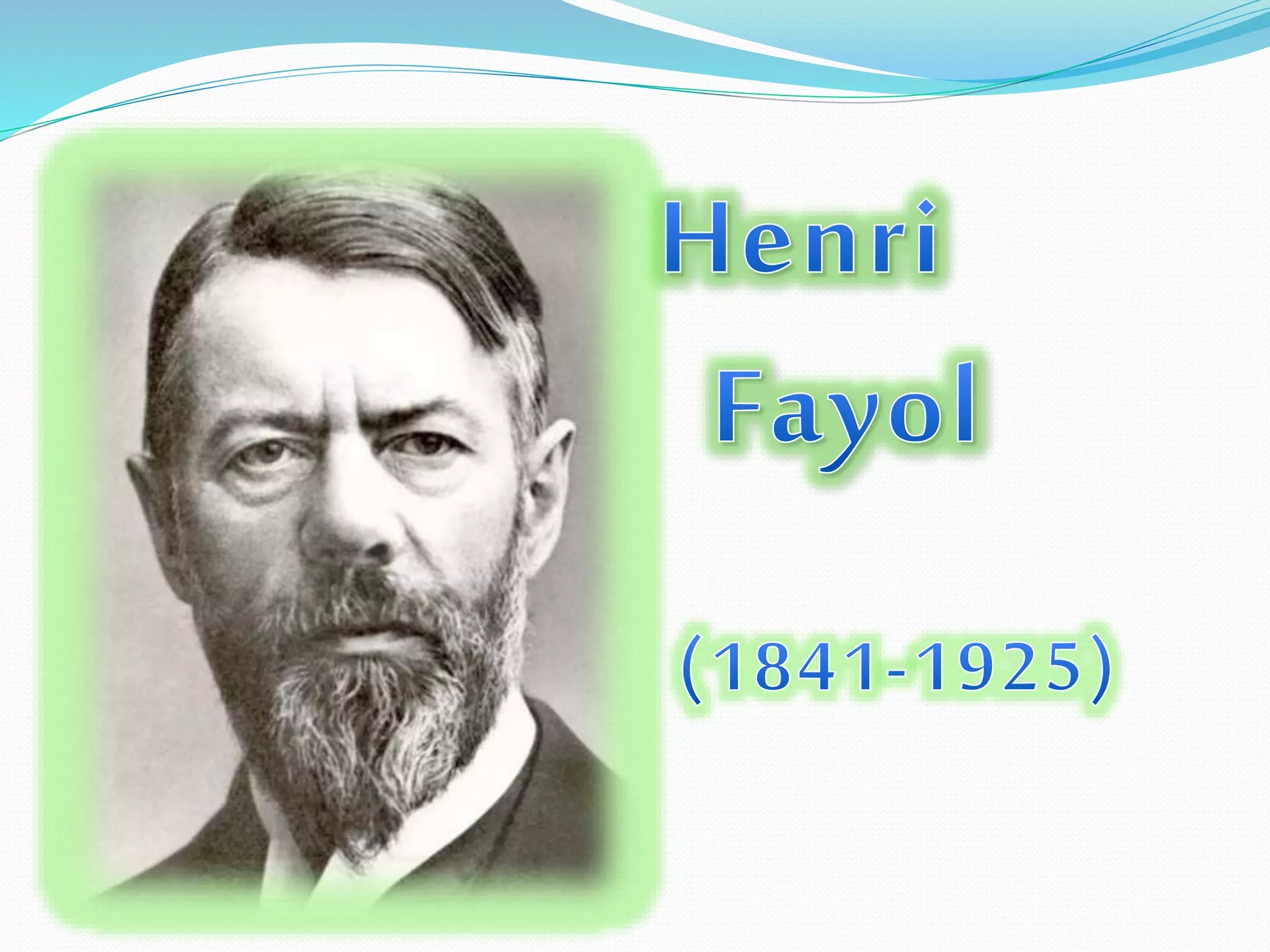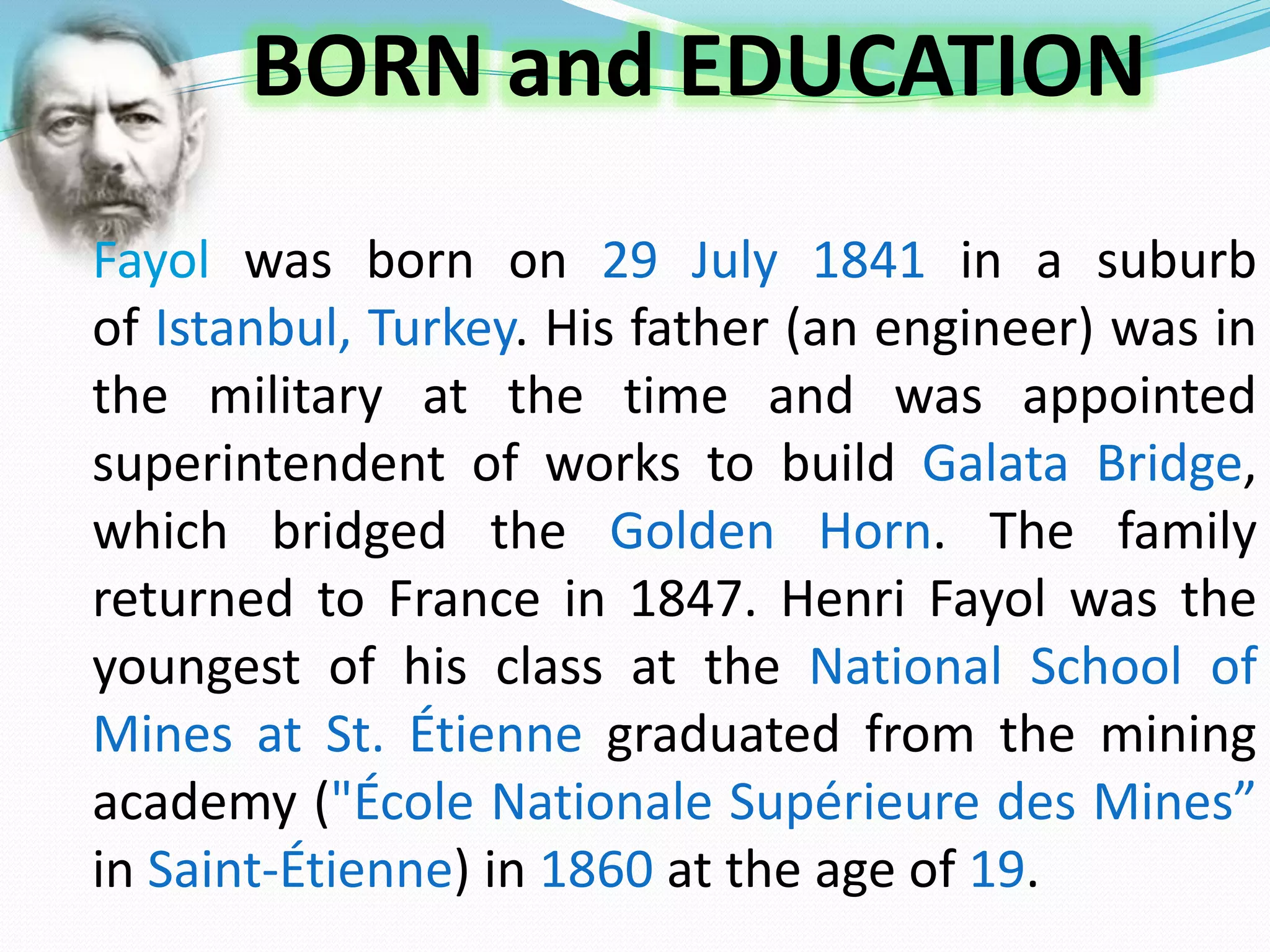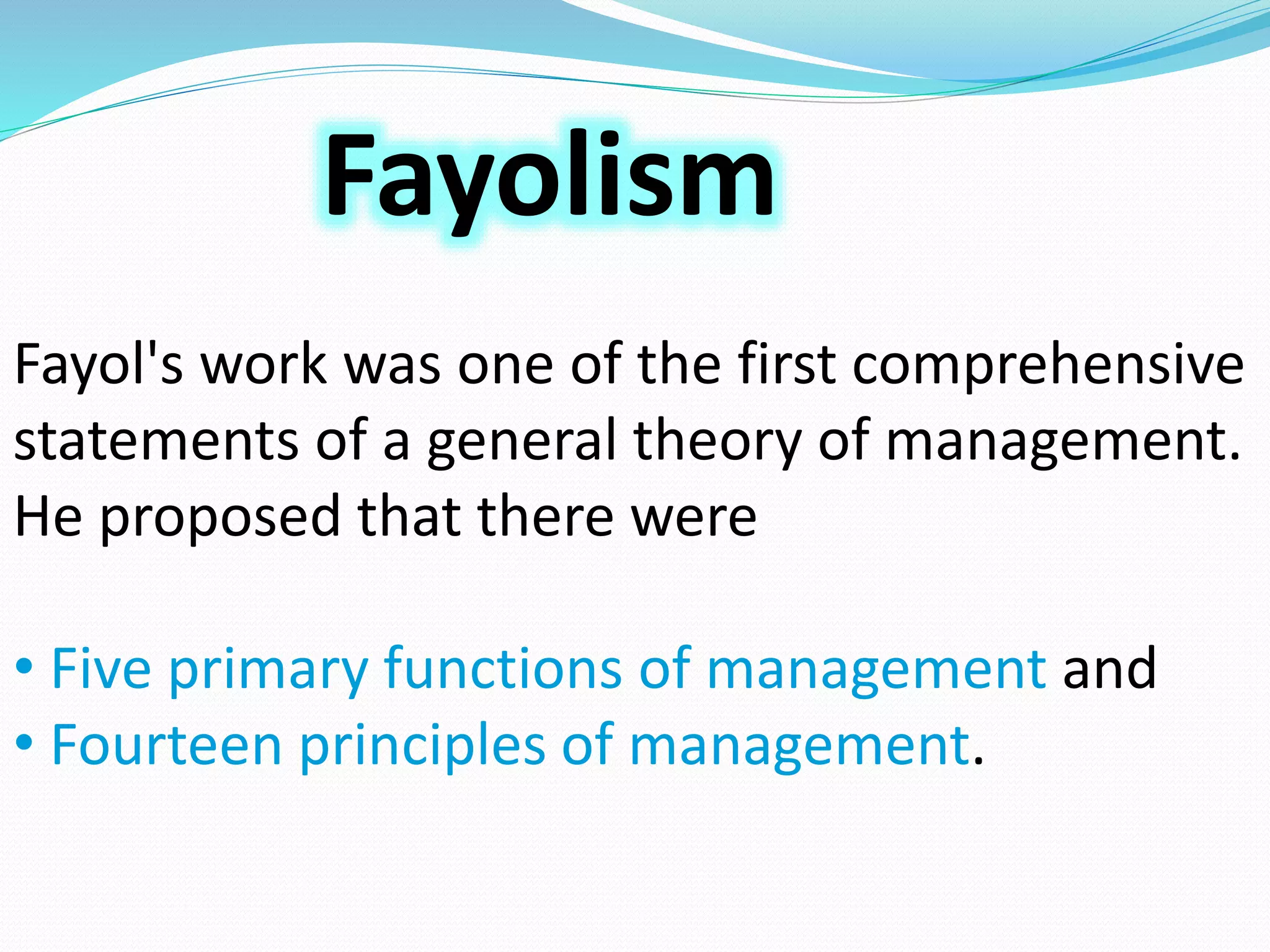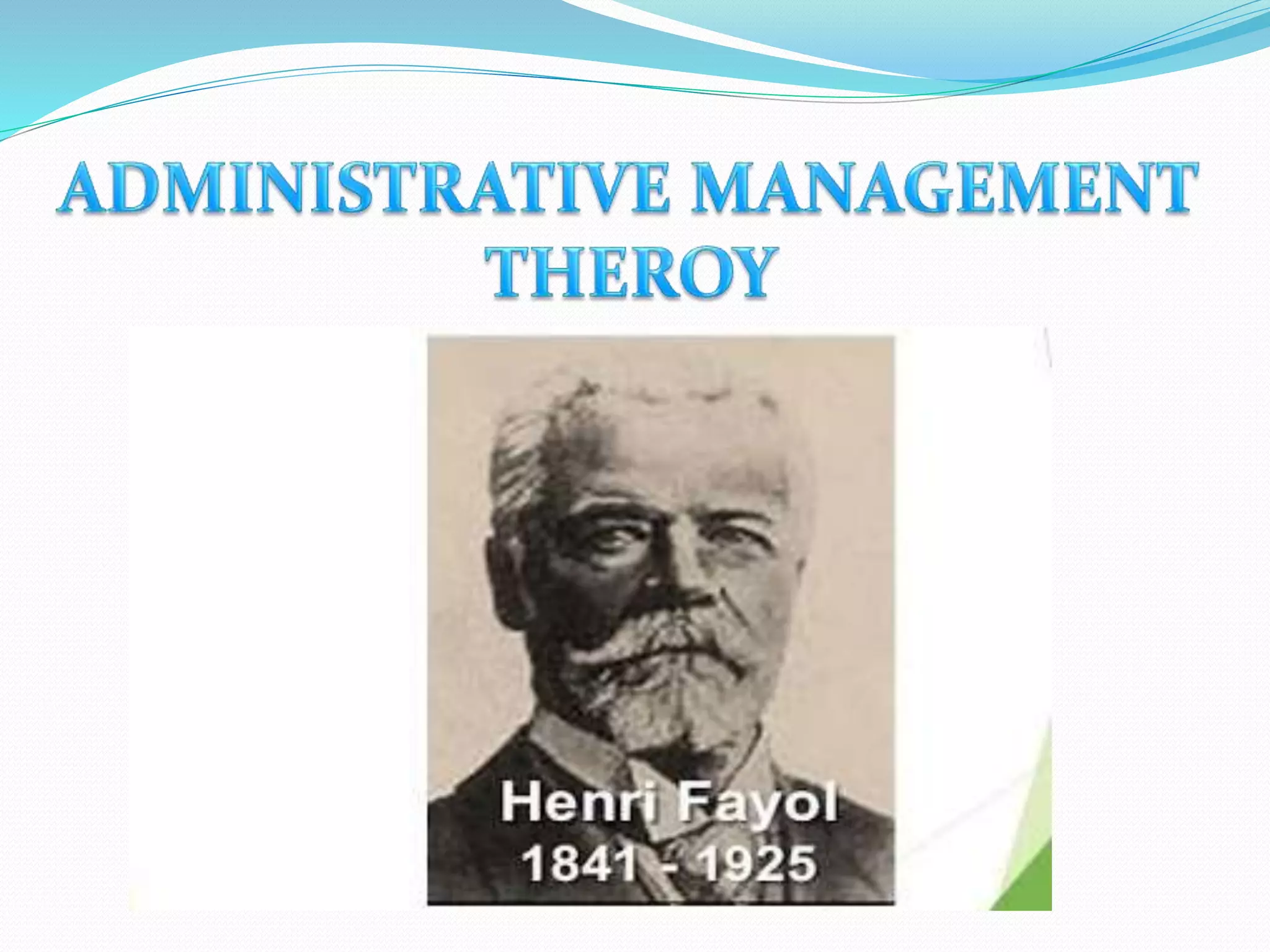Henri Fayol, born on July 29, 1841, in Istanbul, Turkey, was a prominent mining engineer and business leader known for his contributions to management theory. He proposed five primary functions of management and fourteen principles that emphasized planning, organizing, and the importance of a structured approach to management. Fayol's work laid the foundation for management as a distinct field and advocated for the application of scientific methods in organizational leadership.










































